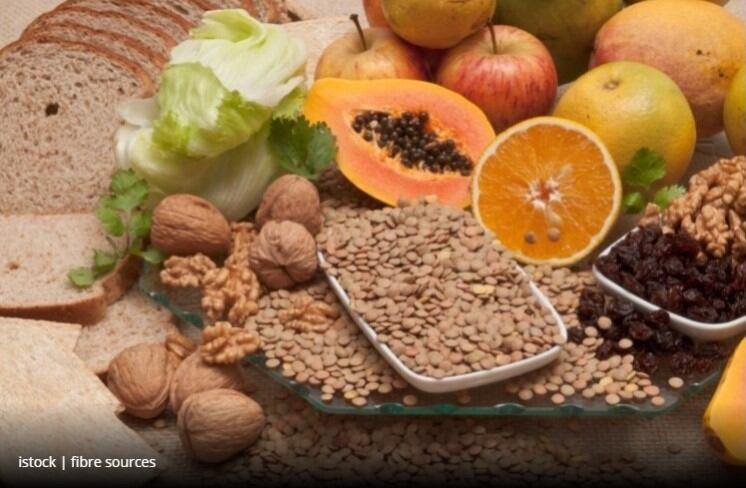Five different types of fermentable fibre failed to correct IBD-related microbiome dysbiosis or influence bacterial taxonomy, according to a recent study. This was in complete contrast to healthy controls (HC), where significant changes in species abundance were observed, the authors claim.
“Results suggest that either the role of these dietary components is not important in the course of IBD or these microbial therapeutics fail to achieve their presumed primary objective to favourably modify the gut microbiome and subsequently produce a clinical benefit,” they write.
As such, they suggest other strategies might be required to reverse microbiome dysbiosis in IBD to improve disease outcomes.
Impaired fermentation
Fermentation of dietary fibre in the human gut produces short-chain fatty acids (SCFA) that have major health-promoting properties, but the role SCFAs in IBD is unclear.
Previous studies have failed to provide substantial proof on the effectiveness of prebiotic and fibre supplementation to positively influence clinical outcomes in patients with IBD. This could be the result of a functional impairment of the gut microbiome in its response to dietary fibre and, consequently its health-promoting effects to the host.
In the current study, scientists set up in vitro fermentation to examine the comparative effect of specific dietary fibres, commonly in Western diets, on the composition of gut microbiome and production of SCFA in patients with IBD and HC.
They point out that in vitro studies offer the flexibility to standardise experimental conditions, such as the amount of microbial community and gut transit time, which are not possible in vivo.
Study design
Researchers assigned 36 adult participants to three groups: Crohn’s disease and ulcerative colitis (UC) in remission, IBD, and HC, and faecal material collected for analysis and experimentation. None of the participants had used antibiotics three months prior to sample collection.
Scientists carried out two fermentation experiments on a total of 249 faecal samples. The first involved fermentation of different types of dietary fibre using faecal material from participants to examine changes in gut microbiome composition. A similar protocol was used to analyse the production of SCFA after fermentation.
Fibre substrates used in the study were 500mg of high resistant maize starch (Hi-Maize), apple pectin, raftilose, α-cellulose, and wheat bran. In addition, 100 mg of each fibre was pooled to create a 500 mg mixed fibre substrate to be included in the batch culture fermentations. A non-substrate control (NSC), without the addition of a fibre substrate, was used for each participant.
Outcomes
The authors note that microbiome structure of all fibres and conditions was influenced by fibre fermentation at baseline, except for samples from patients with CD undergoing fermentation with raftilose.
This effect was more pronounced for HC than patients with UC or CD, and less in patients with UC compared to patients with CD, and for each fibre separately. The NSC and wheat bran influenced microbiome structure the most, particularly in HC, and the mixed fibre substrate the least.
Fibre fermentation did not correct the baseline dysbiosis seen in people with CD or UC.
Conclusion
Findings showed that despite extensive dysbiosis, patients with IBD have a similar capacity to ferment fibre and release short-chain fatty acids as healthy subjects. Nevertheless, fibre supplementation alone is not enough to restore a healthy composition of the IBD microbiome.
The researchers suggest other interventions such as eradication of dysbiotic microbiome with antibiotics and recolonisation with faecal material transfer from healthy donors, which has shown promise in the treatment of patients with active UC, may be an option to redress microbial imbalance.
Either way, they maintain more work is necessary to explore a broader range of IBD phenotypes and levels of disease activity to determine the potential benefit of nutritional therapy in IBD.
Source: Nutrients
Published online: https://doi.org/10.3390/nu14051053
‘The Effects of Commonly Consumed Dietary Fibres on the Gut Microbiome and Its Fibre Fermentative Capacity in Adults with Inflammatory Bowel Disease in Remission’
Konstantinos Gerasimidis et al



